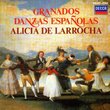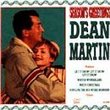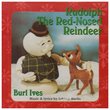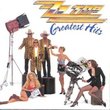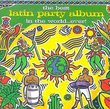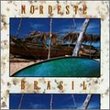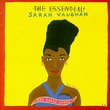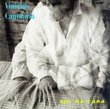| All Artists: Vincenzo Bellini, Richard Bonynge, Joan Sutherland, Montserrat Caballé, Orchestra and Chorus of the Welsh National Opera, Luciano Pavarotti, Samuel Ramey, Diana Montague Title: Bellini - Norma / Sutherland · Caballé · Pavarotti · Ramey · WNO · Bonynge Members Wishing: 0 Total Copies: 1 Label: Decca Release Date: 10/25/1990 Genre: Classical Style: Opera & Classical Vocal Number of Discs: 3 SwapaCD Credits: 3 UPC: 028941447623 |
Search - Vincenzo Bellini, Richard Bonynge, Joan Sutherland :: Bellini - Norma / Sutherland · Caballé · Pavarotti · Ramey · WNO · Bonynge
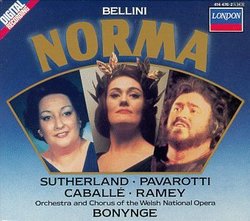 | Vincenzo Bellini, Richard Bonynge, Joan Sutherland Bellini - Norma / Sutherland · Caballé · Pavarotti · Ramey · WNO · Bonynge Genre: Classical
Sutherland's Norma offers ravishingly beautiful tone at a pitch where most soprano voices get thin, exquisite grace and agility in the elaborate ornamentation that characterizes bel canto style, and freedom from strain no ... more » ![header=[] body=[This CD is available to be requested as disc only.]](/images/attributes/disc.png?v=a4e11020) ![header=[] body=[This CD is available to be requested with the disc and back insert.]](/images/attributes/disc_back.png?v=a4e11020) ![header=[] body=[This CD is available to be requested with the disc and front insert.]](/images/attributes/disc_front.png?v=a4e11020) ![header=[] body=[This CD is available to be requested with the disc, front and back inserts.]](/images/attributes/disc_front_back.png?v=a4e11020) |
Larger Image |
CD DetailsSynopsis
Amazon.com Sutherland's Norma offers ravishingly beautiful tone at a pitch where most soprano voices get thin, exquisite grace and agility in the elaborate ornamentation that characterizes bel canto style, and freedom from strain no matter what kind of vocal acrobatics a composer may demand. What one misses here is the heightened drama, the precise delineation of character and emotion, and the verbal mastery of Callas. Sutherland's voice--the main reason for wanting to hear this recording--is perhaps a shade less fresh in this 1984 performance than when she recorded her first Norma 20 years earlier, but she still has all the grace, all the high notes, and most of the power that earned her the Italian nickname "La Stupenda." She heads an all-star cast that lives up to its reputation, and her husband's conducting is more impressive than it was in 1964. --Joe McLellan Similar CDs
Similarly Requested CDs
|
CD ReviewsA sad recording 09/19/1999 (2 out of 5 stars) "Joan Sutherland was about 60 at the time of this recording. What you hear is a barely recognizable Sutherland sound. The Decca cd set with Sutherland/Horne is the one to get, believe me. Sutherland and Horne were dropped dead gorgeous in their 1960's definitive Norma. If you choose to buy this set because Caballe is Adagisa, be warned that the two divas sound very boring and tired. All of Sutheland's famous high notes are completely gone, even her trill and colortura runs are inaccurate. Please, I'm Sutherland's biggest fan, that's why I'm telling you how it really is. This Norma is a disaster. Remember though, the Sutherland's earlier Norma with Marilyn Horne is a real gem." The most gratifying recording of Norma Niya | USA | 12/02/2004 (5 out of 5 stars) "This is the recording to get if you want to listen to BELLINI's Norma (instead of Callas', for example). Why? There are many reasons: 1. The recorded sound of this set is the best of all available Norma's (better than the Sutherland/Horne and all Callas versions). 2. The conducting is the most satisfying of all (Serafin is fine but does not have the flow and buoyancy of Bonynge). Bonynge can be very disappointing at times, but in this recording he's perfect (listen to the beautiful Overture). He also does a much better job here than in the Sutherland/Horne recording. 3. We have the best sounding Pollione in Pavarotti. Frankly, it is a joy to listen to his glorious voice. He also sings more stylishly than any other Pollione (more so than Corelli, for example). Beautiful coloratura and glorious high notes. Gorgeous voice. Intelligent, passionate, and stylish interpretation. 4. We have the most pleasant sounding Adalgisa in Caballe. She's truly a GREAT singer. Her voice is just beautiful and lovely. It's an intense pleasure listening to her great artistry in this music. She's much more gratifying than, say, Stignani or Ludwig, and even more beautiful than Horne. Horne is wonderful, of course, but Caballe's beautiful soprano voice is, to me at least, even more attractive. One might also find Caballe more sensitive as a musician than Horne. She has the femininity, tenderness and vulnerability missing in Horne's interpretation. It's also interesting to remember that Giulia Grisi created the role of Adalgisa, and she was a soprano, not a mezzo. It's wonderful to have a soprano Adalgisa here in the great Caballe. 5. Finally.... Sutherland, Queen of Bel Canto. It's true that she had a "younger" (notice I did not say "more beautiful") voice in her first recording of Norma than in this recording, made in 1984. However, in this recording she still has ALL the high notes here, all the coloratura technique, all the legato, all the beautiful singing required in Norma and Bellini. And yes, a still very beautiful voice! Her interpretation has also matured. Now we have here a very affecting and moving Norma who also has authority plus brilliance of singing! Effortless technique as always. She is the voice of the century, indeed. For all these reasons, if I can only choose one Norma recording, this would be it. Also recommended are the Sutherland/Horne set as well as the Caballe version. One must not miss the numorous Callas version, either. Callas is also a great Bel Canto singer. In her prime (the 1960 Norma is NOT), she had great style, great technique, and a beautiful voice. She even had more dramatic presence than Sutherland (though never as gorgeous in tone or elegant in phrasing and technical execution). She's the one that inspired Sutherland and Caballe, after all, and her greatness is not to be missed." Great recording with Sutherland, Caballe, and Pavarotti!!!!! BRETT H DAVIS | Boynton Beach, FL United States | 07/28/2001 (5 out of 5 stars) "I am a huge fan of all of the 3 principals and saw them many times at the San Francisco Opera in the 70's and 80's. Their TURANDOT studio recording together from 1973 is other worldly...and I am also a big fan of a Nilsson, and Price and all of the greats that I have seen or been lucky to be exposed to over the years. This NORMA was recorded in 1984 and they are all in great voice. Remember Caballe went on to sing ISOLDE in 1989! Only Caballe would use pianissimos in the Act II love duet. I have the LP with Sutherland/Horne NORMA from 1964..(from my teen years) it is the most beautiful NORMA ever recorded. However, I especially love the last act of this opera and the final scene with Sutherland and Pavarotti (the dynamic vocal duo) moves me deeply. Sutherland does not sound tired! The only recording of Sutherland'S that really sounds tired and effortful is the Video VHS of the LES HUGENOTS which I believe was her farewell performance from the stage in Australia. It was painful to watch and I have never finished watching it! I saw the great Maria Callas in her farewell tour with Di Stefano and it was sad. I think people who only enjoy one singer in a particular role are limiting themselves and closed minded. Callas, Caballe, Sills, and even Shirley Verrett (who sang it in SF) are all great interpreters of NORMA. Pavarotti is at the peak of his powers and that is why I bought this recording. Buy it and you will not be disappointed!"
|

 Track Listings (10) - Disc #1
Track Listings (10) - Disc #1
